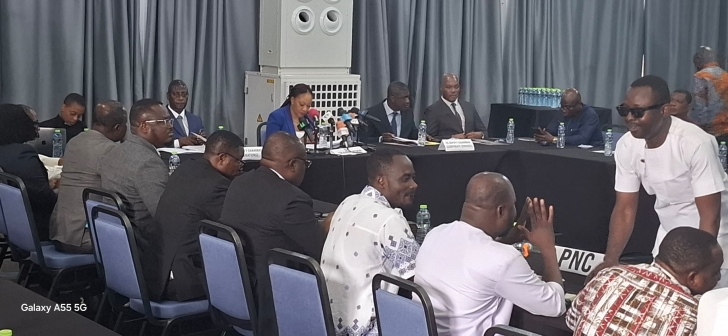In today’s global push for transparent, inclusive and credible electoral processes, rethinking how elections are managed is crucial.
The Inter-Party Advisory Committee (IPAC) of any Electoral Management Body (EMB) plays a pivotal role in shaping electoral policies and practices. For IPAC to achieve its mandate, it must evolve into a structured, expertise-driven body that embraces foresight, inclusivity and best practices.
Apex of Electoral Policy Rethinking
An effective IPAC should serve as a high-level advisory and oversight body, functioning at the intersection of political governance, technology, law and election management.
It must constantly align its governance and electoral policies with the evolving political landscape, technological advancements, and international best practices.
Rather than being an ad-hoc entity, IPAC should be a strategic institution embedded in the electoral architecture, with a clear mandate to advise the Electoral Commission (EC) on enhancing election integrity, transparency and inclusivity.
Best Practice in Expertise
IPAC’s effectiveness depends on the quality of expertise within the committee. Essential areas of expertise include:
1. Electoral Commission Operations – Experts familiar with EC’s operations ensure policies are practical and implementable.
2. Political Governance – Representatives from political parties and civic governance organisations provide insights into the political ecosystem and the implications of electoral decisions.
3. Information Technology – IT professionals ensure secure, transparent, and efficient use of technology in elections.
4. Legal Expertise – Lawyers ensure decisions are grounded in legal frameworks and can withstand judicial scrutiny.
5. Functional Management – Expertise in finance, procurement, human resources, and research strengthens policy recommendations.
Broad Sponsorship of Expertise
IPAC’s membership should not be limited to political parties. A broader coalition, including civic society, election observer missions, donors, and media, should be represented to provide oversight and ensure socially accountable decisions.
– Electoral Commission – The EC offers critical operational and logistical expertise.
– Political Parties – They ensure representation from across the political spectrum.
– Civic Society Organisations (CSOs) – CSOs advocate for marginalised groups, promoting inclusivity.
– Donors and Election Observer Missions – These groups bring international best practices and oversight.
– Media Union – Media contribute to transparency and public accountability.
Best Practice in Procedure
For IPAC to be effective, its procedures must follow best practices in transparency, accountability and efficiency.
1. Regular Meetings – IPAC should meet regularly, particularly in the lead-up to elections, with structured agendas, clear action points, and follow-ups.
2. Data-Driven Decision-Making – Decisions should be based on data, whether related to voter turnout, election disputes, or logistical challenges.
3. Consensus Building – The committee should aim for consensus, with mechanisms to resolve disputes and avoid deadlocks.
4. Transparency – Outcomes of IPAC meetings should be publicly available to maintain trust.
5. Foresight and Innovation – IPAC must prioritise foresight, and planning for challenges such as technological disruptions and security risks.
Legislative Structure and Secretariat
IPAC should have a clear legal framework defining its advisory role, scope and relationship with the Electoral Commission. A structured leadership model and a permanent secretariat are essential for its smooth functioning.
Leadership Options
The leadership structure is critical to IPAC’s neutrality and effectiveness. Options include:
– Rotational Leadership – Alternating leadership among political parties, civil society, and election observers to promote inclusivity and reduce bias.
– Independent Chairperson – An individual with no political affiliations but a strong background in election management or governance.
– Co-Leadership – Pairing leaders from different stakeholder groups to balance political and technical perspectives.
Budgetary Planning and Resource Allocation
A successful IPAC requires sound budgetary planning and resource allocation. This includes funds for regular meetings, expert consultations, training and technology for data analytics.
Public outreach initiatives should also be well-funded to foster transparency and civic engagement. Donor organisations, development partners, and government support should be leveraged to ensure IPAC’s independence and effectiveness.
Conclusion: IPC’s Future
The future of electoral integrity relies on a strong, expert-driven IPAC that serves as a pillar of policy innovation and transparency. With broad-based representation and adherence to procedural best practices, IPAC can provide meaningful oversight and advice to the Electoral Commission.
As elections become more complex and scrutinised, a well-structured and expertly-led IPAC is urgently needed in Ghana and beyond.
The writer is an Elections Management Practitioner
















